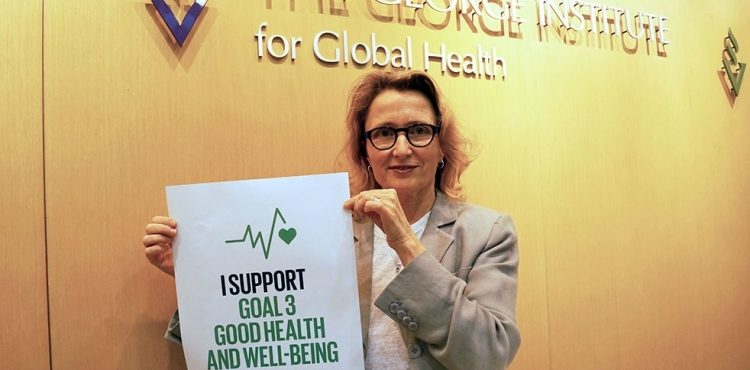Oxford University’s George Institute for Global Health is today collaborating with Patients Know Best (PKB), the world’s only fully patient controlled medical records system, on a research trial studying how home monitoring tools can support heart failure patients.
The Oxford University’s Healthcare Innovation and Evaluation unit of the George Institute for Global Health is lead by Prof. Kazem Rahimi and is one of the leading research centres in the area of integrated digital health worldwide.
The SUPPORT-HF research programme aims to develop and evaluate an integrated third generation home monitoring system for management of patients with heart failure in the UK. The first phase of the programme has successfully completed the development of a home monitoring system that is easy to use and well accepted by patients independently of their digital literacy.
In the second phase, the home-monitoring (HM) system is continuously being improved and assessed in an initial randomized controlled trial of about 200 to 350 patients. In that context, the team of researchers at Oxford University have started a pilot collaboration with Patients Know Best to test their ability to extract patients’ medical history from hospital electronic health records. Combined with the daily measurements (such as blood pressure, weight and symptoms) collected through the SUPPORT-HF HM system, this comprehensive patient profile will help the study’s specialist cardiology team to tailor and improve patient’s medical management. Ultimately the SUPPORT-HF programme aims to assess whether the developed home monitoring system improves the quality of life of patients living with heart failure and reduces unscheduled hospital admissions and avoidable death.
Prof. Kazem Rahimi, Associate Professor of Cardiovascular Medicine at the University of Oxford, said:
“The wider aims of the project are all about understanding patients wellbeing to deliver better care – reducing mortality and improving quality of life. The first stage showed that home management tools can be of real benefit to heart failure patients. For the second phase, we want to leverage Patients Know Best’s technology to fully understand the value of an integrated electronic health record approach to remote healthcare management.“
Dr Mohammad Al-Ubaydli, founder and CEO of Patients Know Best said:
"Prof. Rahimi’s research brings together amazing remote monitoring devices and central decision support. We are proud that for this next phase of the research, PKB is a data integration platform for patients’ hospital electronic health records and makes that data available via the PKB API. This will allow building better algorithms and better interventions for patients."


